Dropsolid Diaries 2023: Becoming the global open digital experience company
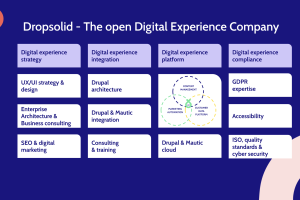
In the Dropsolid diaries series, I talk in-depth about the journey of Dropsolid. It contains company insights, personal experiences, DXP and CMS market insights, and many other learnings I learned as the founder of Dropsolid.
This long read is part of the Dropsolid Diaries series. The previous chapters can be found below:
- Part 1 covers our startup days, which taught us about running a business, funding, hiring & training talent, sales, and marketing.
- Part 2 is all about the first scale-up stage. It discusses how we improved our overall product development, growth, vision, mission, values, corporate structure, procedures, and business units.
- Part 3, is about becoming profitable and laying the foundation of the digital experience company.
- Part 4, is about the transition of Dropsolid toward two business units: The Dropsolid experience cloud and the Digital experience agency that delivers products and services to help customers achieve the best digital experience in all freedom.
This is Part 5, we'll cover:
- The transition of Dropsolid towards one global digital experience company: The two units we created, Dropsolid Experience Cloud and the Digital Experience Agency, merged back together to deliver an even better digital experience.
- The start of our global expansion.
This 10th anniversary year, we felt we went full circle.
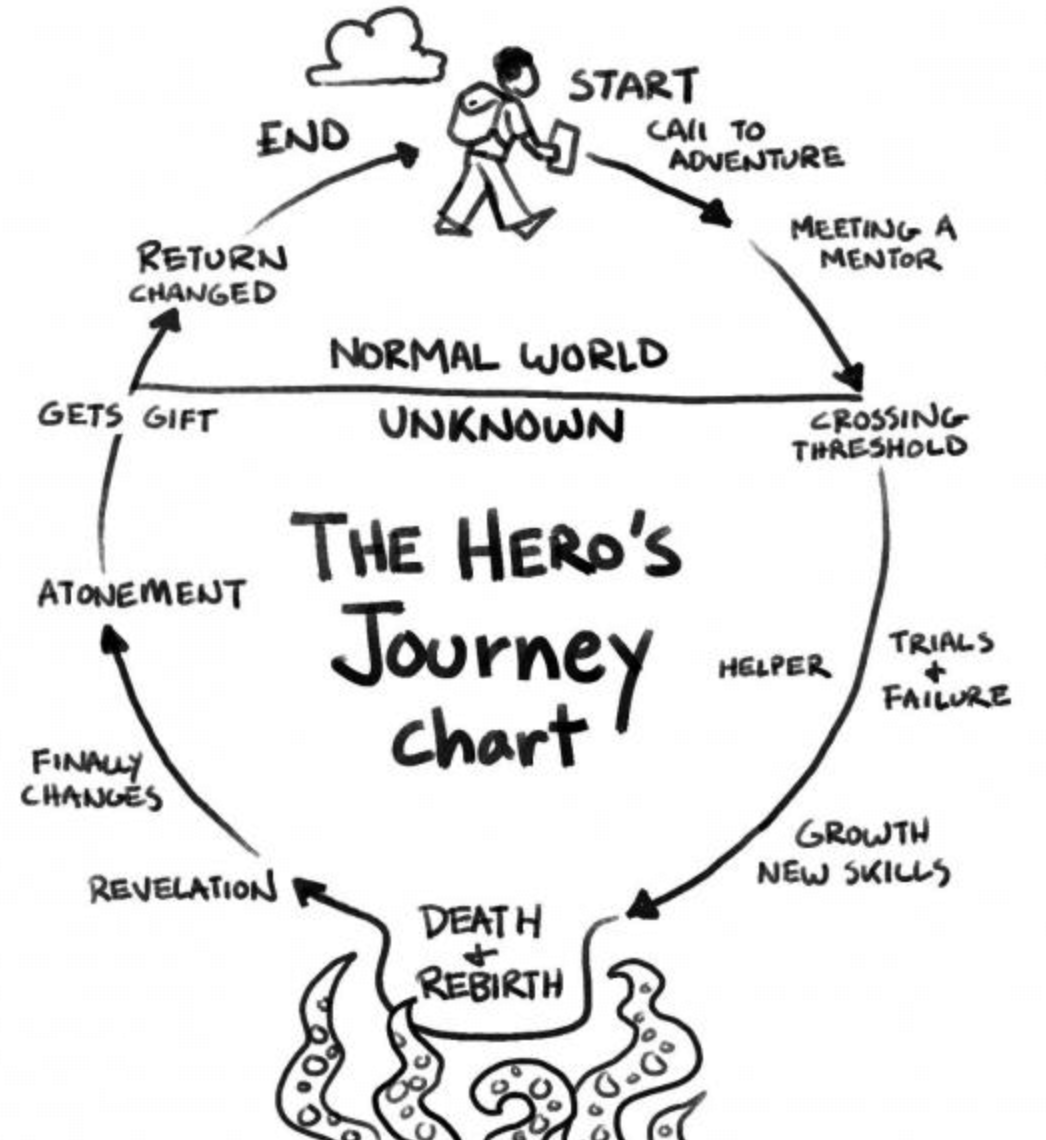
Let's go :)
The Big Learning
Although I was very positive at the end of last year revenue-wise. We faced a slow down in sales in the first quarter of the year. Although looking good, we lost some crucial deals that pointed out some weaknesses in our strategy.
Discovering that your strategy is not working is never fun, but accepting this as quickly as possible is the only way forward. When we completely realized that the mayonnaise started to shift, we knew we had to take action.
What went wrong? Although we kind of anticipated it, it wasn't thorough enough. We discovered that splitting up into a digital experience agency and digital experience platform made our value proposition less clear to the market, and we discovered that customers were actually not looking for high-level agencies but for hands-on integrators. With high inflation and pressure on budget, customers don't want to invest in big fluffy ideas. They want immediate operational results.
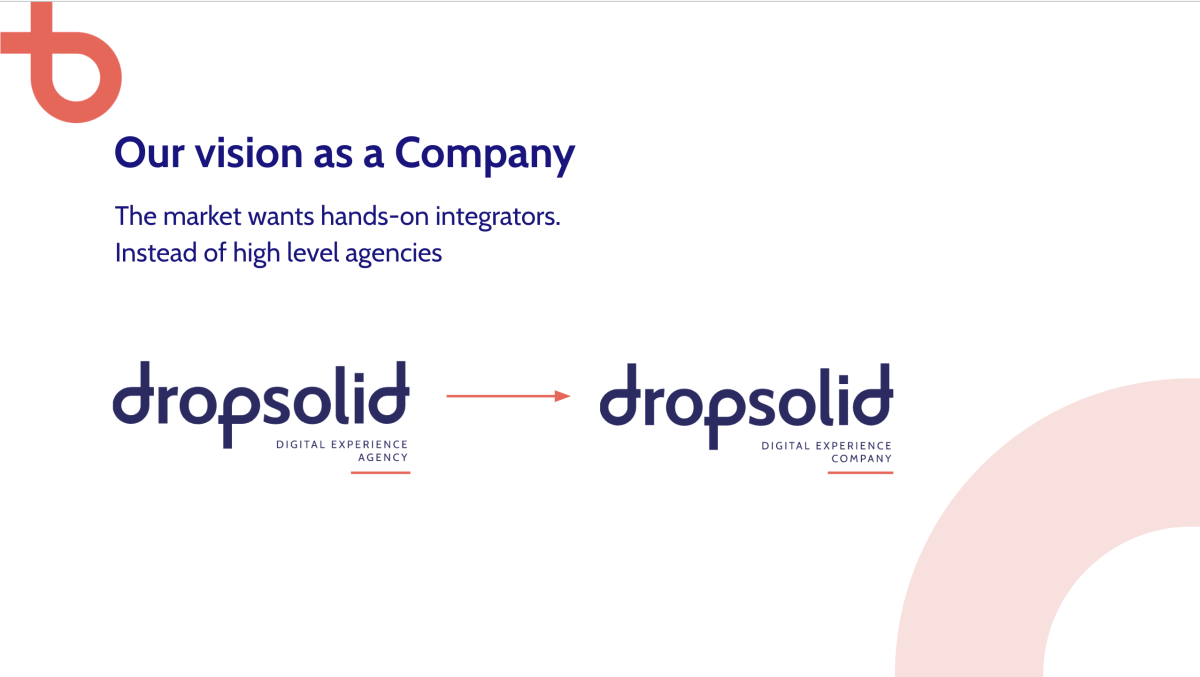
The good thing? We are still an extremely capable integrator at heart, and we know the theories the business consultants proclaim, but we are pragmatists and actually get it done. With 80% of staff being IT integrators, you could argue why we ever considered calling ourselves an agency. Yeah, I know, in retrospect I think this too. How could we be so blind?
Anyway, once we figured it out, we changed course. Steven and I took on the CEO role. Together, this time as co-CEOs, we appointed a technical director, Dieter Blomme; we reinforced our DXP team and reinforced our technical directorship on the DXP product with Mattias and let him focus 100% on the product. We also hired a CRO, Jeroen Spitaels, former CEO of Mealhero, to drive revenues like it is being done in a PaaS/integrator business.
Of course, this meant we had to say goodbye to a couple of managers as well as the vision of the company changed. We learned that transferring skills is not so easy. We tried to transfer their skills to the new approach or, let's say, the old approach of the first 8 years of Dropsolid, but "the mayonnaise didn't stick" and started to curdle. So we said goodbye. It's really difficult to have an agency-type CEO also run a PaaS & integrator business simultaneously and make it work together. Steven and I learned that this is exactly what we know how to do, so we decided to take over.
And we dropped agency from our tagline. This was symbolic because it symbolized we had abandoned the agency idea. It didn't fit us. It seemed a good idea to split the business into two parts, but in the end, the strength of Dropsolid is delivering a Drupal- and Mautic-based open DXP with a killer implementation. This is not clear when you have agency in the tagline. However, we do have services that agencies also deliver, like UX strategy, UX design, marketing automation/personalization guidance, SEO, and data guidance. We are not an agency, we are not marcomm at heart although we know what we need to know. We are a company, an IT company, a tech company at heart.
The Turn Around
This is the newly installed the new management team. Yes, again, CEO, co-CEO, that is. Also there, I learned from previous mistakes. Together with Steven, we divided the role according to our strengths. Steven on user experience strategy, operations, and services, and myself on company strategy, commercialization, and product. I feel together, we are more than the sum of the parts.
For Steven and myself it was also a revelation that we really need to trust our instincts. We were more than just founders, only capable of running a startup. We wrongly bought into the idea that we had to hire professional managers because they would know how to manage a company in the scale-up phase. I'm very grateful of the knowledge brought in by the external managers, however now it's time to trust in our own capabilities. Having been more than 16 years in the Drupal community, involved in web for almost 20 years, it is safe to consider this a basis to build on. I underestimated how valuable it has been to have been conditioned by operating in an open-source community and how valuable this point of view is. While still learning every day, it is also good to have confidence in the fact that experience is there.
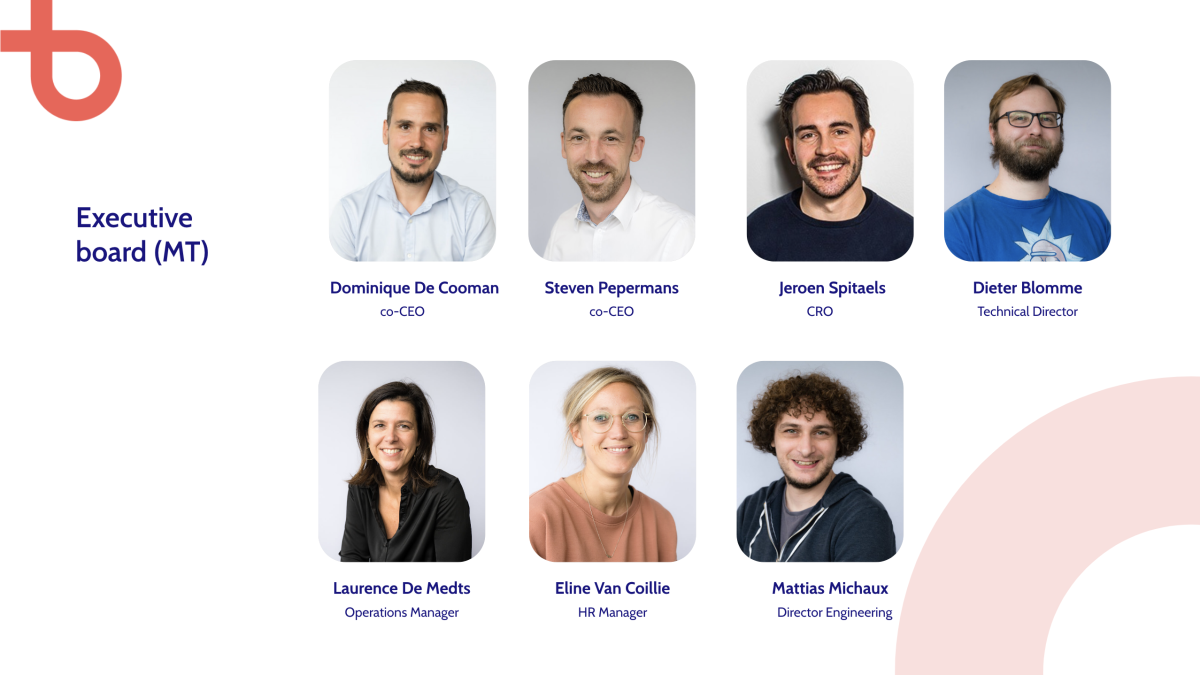
This is the team that will drive the business of the digital experience company. What I like most about it is that 6 out of 7 are homegrown managers. They are sort of being trained within the context of Dropsolid, the CMS/DXP business, and the unique combination of services and products we bring. Jeroen, who already has had a startup/scaleup experience, has been trained similarly, although it was on a different project. Not only with transferable skills but also with the right mindset. There is definitely a big difference between a manager and a founder.
We also made it very clear to the market what we are offering. We boiled our offering to the market down to this:
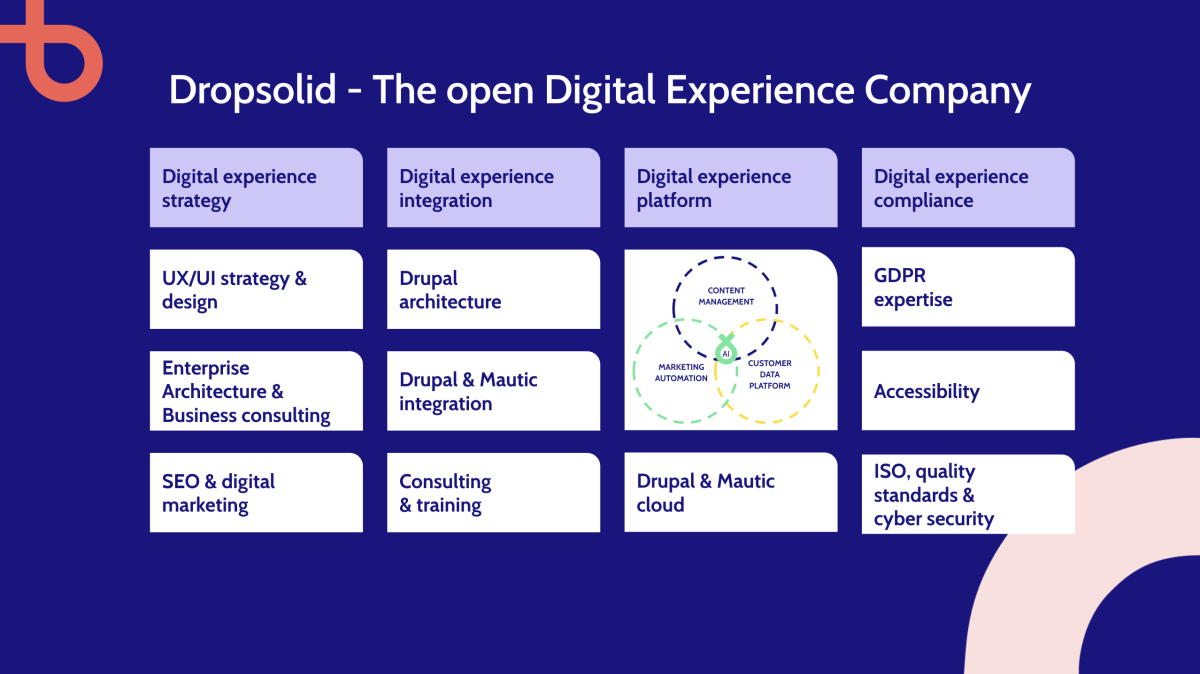
We also had to do some serious internal communications. When a company sails a course and suddenly the captain changes, several senior officers change, and the course gets corrected pretty significantly, questions get raised.
Making sure everyone stays on board is crucial (of course). But it wasn't as difficult as we expected. Many of the old time Dropsoldiers were relieved we changed back to the original vision/mission. One of our long term Dropsolidiers even told me: "What you doing is a cold reboot of the company". I said:"That is exactly what we did".
This is actually how we explained it to everyone.
With two slides.
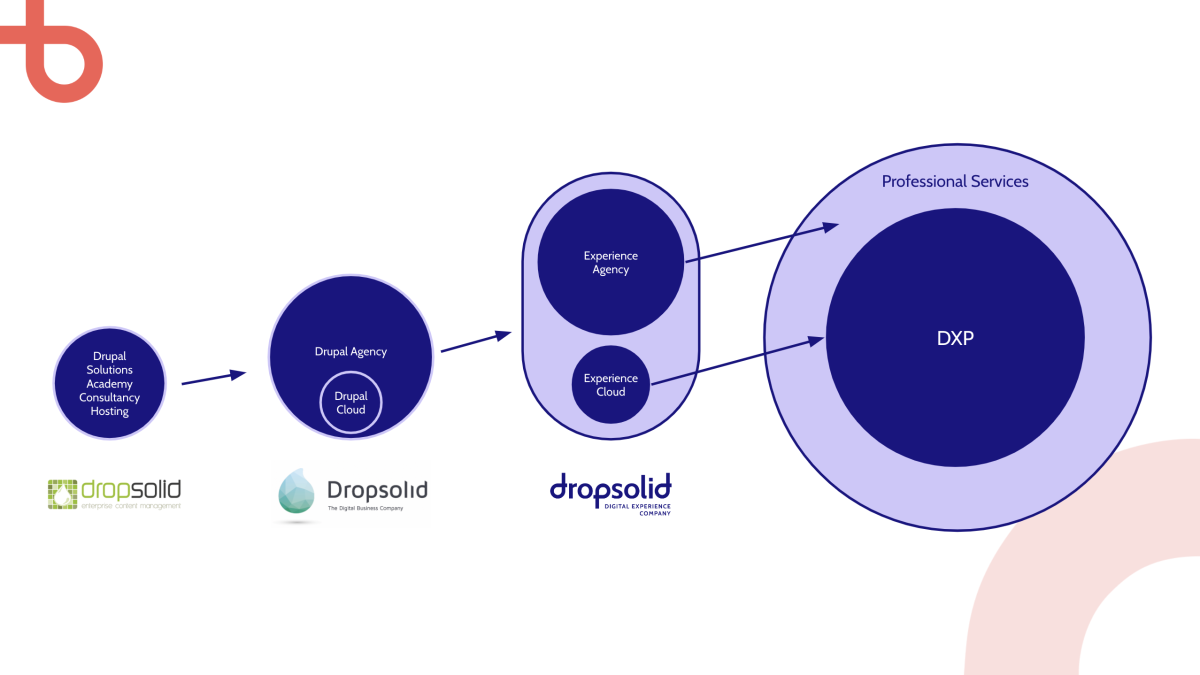
This is the evolution and this is the next step.
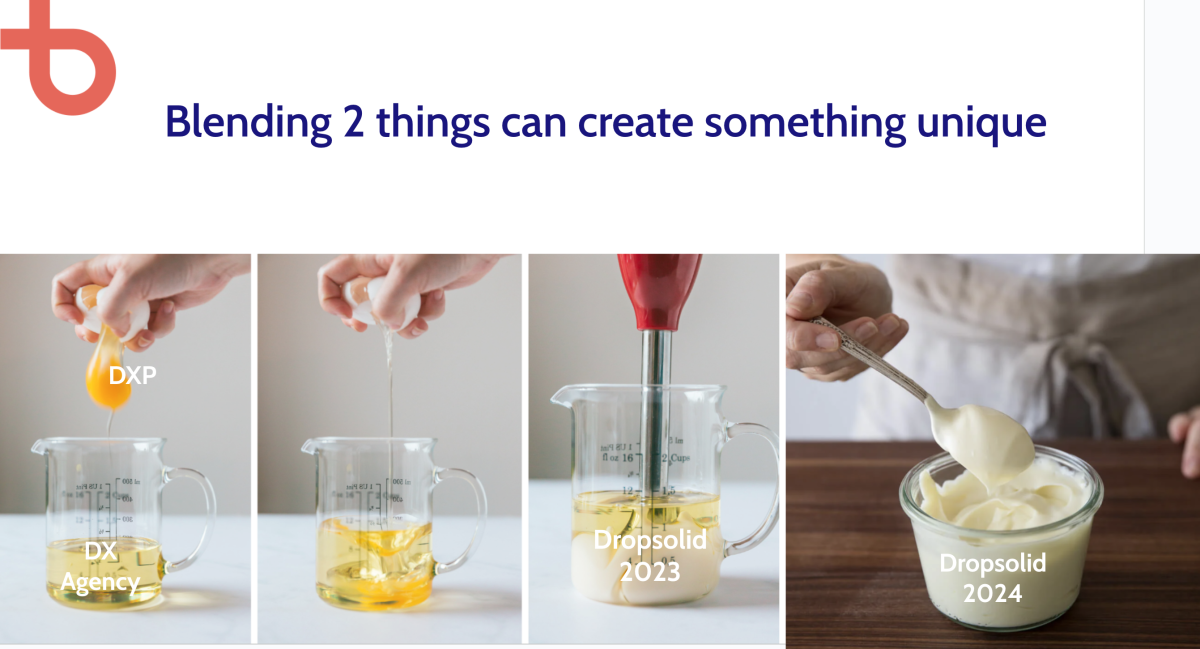
And yes, some people left the company. About 5% of staff left because it didn't match anymore with how and why they were hired. I understand that. And that's ok. But the vast majority felt relieved that Dropsolid returned to its original course. Some people who previously left came back! Erika, one of our most experienced service delivery managers who really wanted to work for an IT company instead of an agency, and Mike our senior marketing automation specialist who lost his heart to Mautic.
But then what happened on the customer level?
Well, the communication to customers, especially new customers, was spot on. We improved our pipe and closed sales by 50% compared to 2022. Yes, you read that right. 50%. I could believe it myself at the end of the year. Our sales team went above and beyond. Customers were coming in from all directions, needing an open DXP that was properly integrated.
We have new customers on national and international levels:
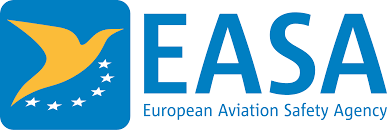
EU Agency to decarbonise aviation with DXP.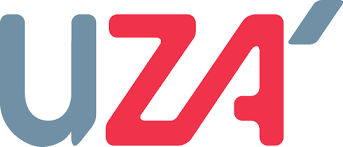
The digital experience that saves lives. Healthcare of the future on DXP.

Smaller enterprises generating leads with DXP.
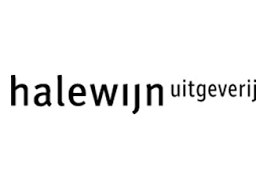
Turning members into ambassadors. Nonprofits and membership organizations use a DXP to create communities.
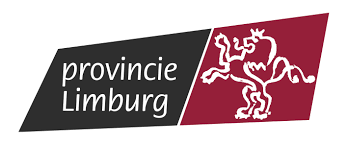
Local government using DXP to automate and optimize the connection with citizens, making government more accessible
And there are many more new customers. Filling up our order book far into 2024, even into 2025 and further. And all with the same exact question. "We need an open DXP that has enterprise capabilities and is integrated fast and painless. We need services with tangible business advice, no high-level consultant theories, no complicated custom tech stacks & no lock-ins. We don't want to lose all our budget and get locked into high-level consultants, proprietary vendors & generalist agencies." Ok, that is exactly what we deliver: we specialize in open DXP, tangible business & digital strategy and, free our customers while teaching them how to fish and be independent, saving lots of budgets. And we do it in weeks and months instead of quarters and years.
On the board and shareholder level we also had profound changes. One of our shareholders wanted to leave the company, so Steven, myself, and Geert (our long-term investor since 2014) bought back the other investors' shares. We believe this was the best thing to do. I'm proud this company is for +-85% in the hands of its founders and 100% in the hands of long-term investors. We believe this gives us an edge over our competition that often does not have the luxury to sail their own course because of other interests. It helps Dropsolid to stay true to its Zebra investment strategy.
As in the hero's journey, the company and I went through the fires, but we came out on the other end in 2023. I'm immensely grateful for that.
The New Adventure
And now the new adventure can start.
Expanding beyond Europe
Steven thought out our new governance model where we distribute leadership. Instead of a command and control type of organization, like your typical agency, we are once again becoming an agile distributed team. Working from 3 continents, connected remotely and in main locations.
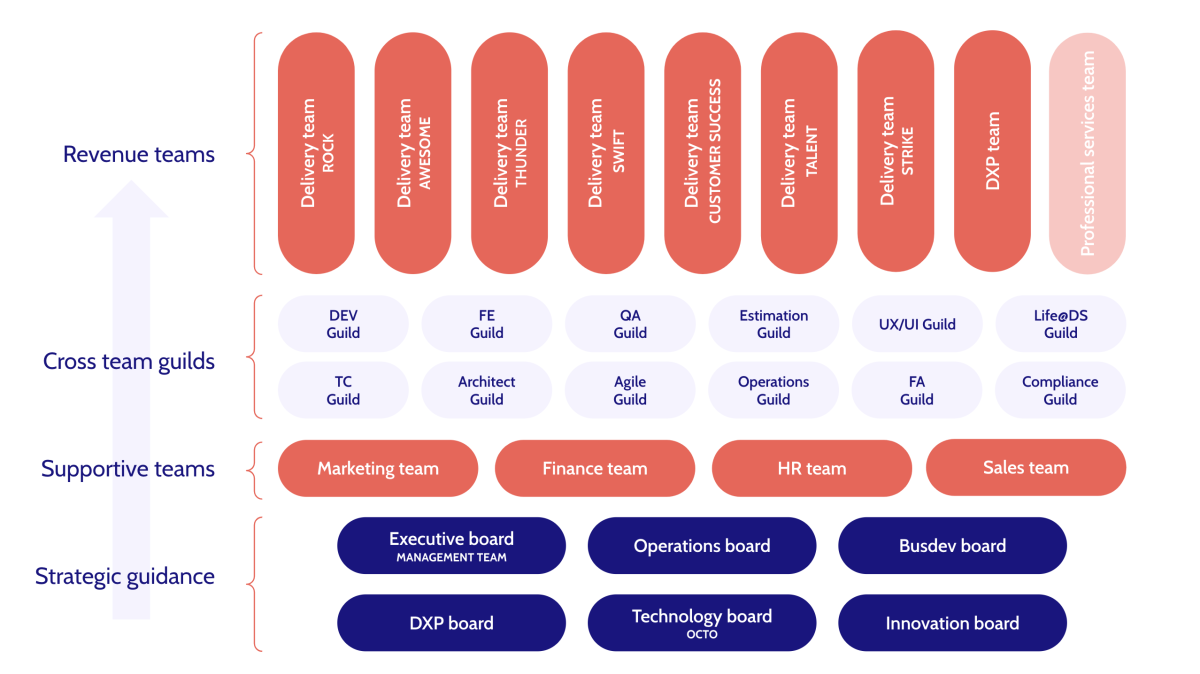
At the same time, we created a new company structure that will hold the needed companies to execute our internationalization strategy.
The to-be-created companies Dropsolid PT and Dropsolid US already have an operational footprint.
Dropsolid International Holding was created on 27-11-2023, and its main purpose is to facilitate the international expansion of Dropsolid as an open digital experience company.
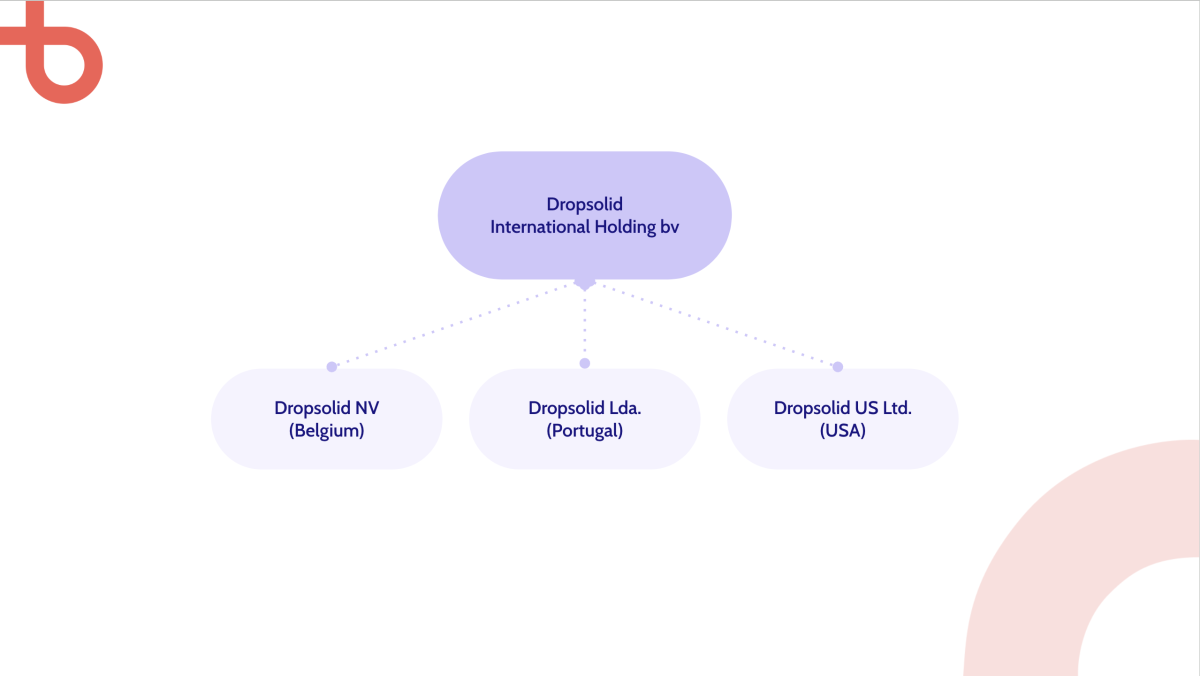
Portugal
I moved at the end of the year to the Lisbon area near Santo Isidoro, where we have an office now at 2km from the beach.
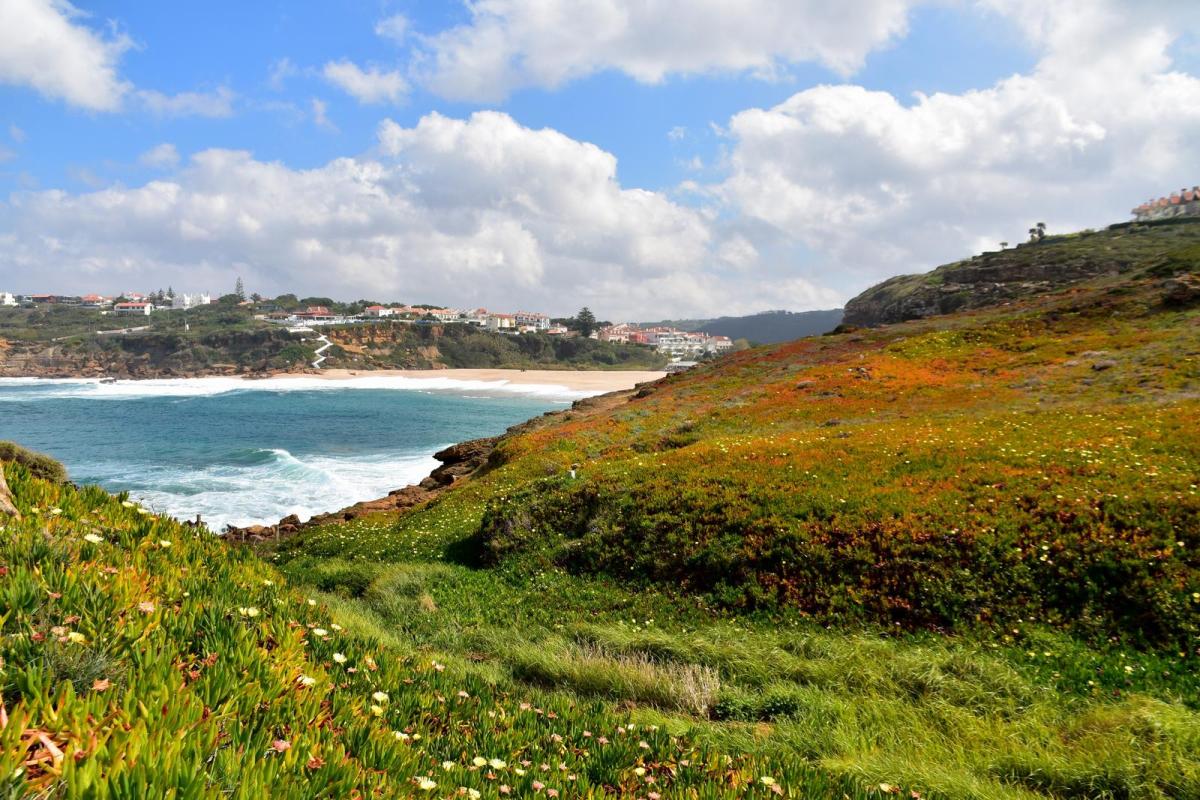
Beatufiul Santo Isidoro. Source
Fun fact: Santo Isidoro is the saint that protects the internet. I thought this was a good sign for Dropsolid, a company that is committed to contributing to the open web and protecting the values of openness. Having an office in Santo Isidoro will bring great blessings to Dropsolid.
Portugal, with its unique strengths on the talent front, has been for Dropsolid a logical choice because we have already been working for years with strong Portuguese talent. Joao and Filipe have senior positions at Dropsolid as technical coaches. And recently hired Manuel reinforces our product team. Now, with an office in Santo Isidoro and a growing partnership with a local Drupal shop, we can expand on this base.
Portugal also has its connections with Brazil (where Mautic is also big!), which finds itself in the US East Coast timezone. Making it a strategic location to deliver marketing automation and DXP support to the US markets as well.
USA
Jeroen, our CRO, moved to New York, where we have an office near Times Square in the Belcham Tower in NY. For Dropsolid, it is an adventure to come to the US, but with our value proposition, we feel we can take our share of the market here, too. An open DXP with a great implementation really focussed on midsize enterprises is in high demand in the US as well. Not every nonprofit, government, or company is ready to work with large corporate integrators, business consultants, and vendors. Dropsolid might be the partner with the deal they are looking for.
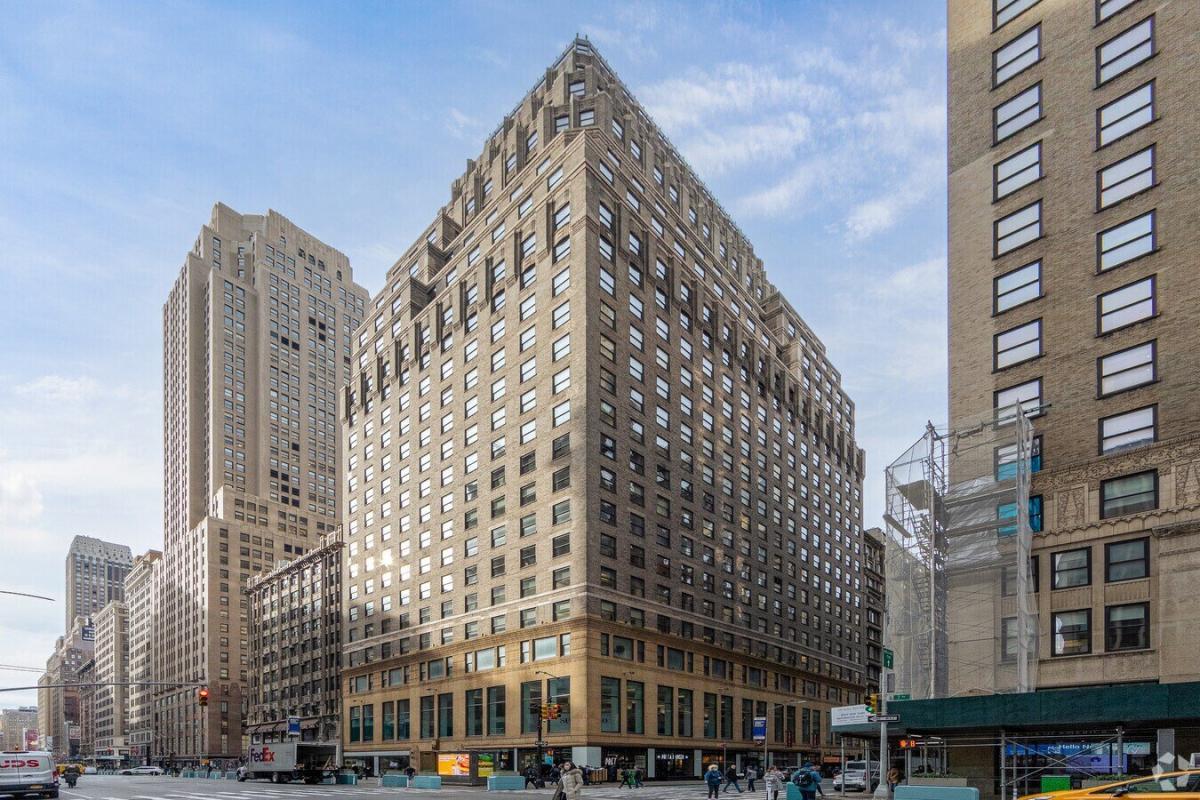
We'll also be a Drupalcon Portland this year with a booth. We won't be sponsoring at the Diamond level (like in Europe) yet, but we are sponsoring on the advocate level (on EU con, that's the gold level) to see where it can go from there.
Asia
We are also looking at Asia, where we'll have two big trips this year. One will be to Mauticon India in Pune and to Thailand at the end of the year. Thailand, which is in the heart of Asia, has captured my heart with its rich culture deeply rooted in Buddhism, and its growing economy. Both trips will have a business part and a spiritual part. In India, we will visit the holy sites in Bodhgaya, and in Thailand, there will be a retreat at Anandagiri Monastery if all goes well.
At Mauticon, I have proposed a session on how to expand the ecosystem of sponsors while Mautic is growing exponentially (see further).
I'm excited that we are taking our first steps in becoming the global open digital experience company.
Community
We have committed to the Mautic community to deliver the free Mautic trials globally. This means creating a presence around the globe. On the Mautic front, we support the project with Mattias as the product lead, with a Diamond sponsorship and free trials. I also became a council member for the next 3 years on the Mautic council. Read more about the impact we like to make.
I'm also happy that we want to increase our Drupal.org status from gold to platinum. This means increasing our financial contribution but also increasing our code contributions.
This shows our commitment to both communities.
The Drupal association is doing great work behind the scenes to promote the makers of Drupal and to grow the business ecosystem. I'm very happy about that. We saw strong support from Dries and Tim Doyle at Drupalcon Lille at the CXO diner and in the Driesnote towards the Drupal business ecosystem. For the first time in 22 years, we are going to really sell Drupal in a centralized way. Selling Drupal as the basis of an open DXP is the winning formula.
It is clear the business ecosystem around Drupal is not yet selling Drupal enough as a DXP. Of course, the market is asking for a faster horse, but in reality, they want a car. The DXP instead of the CMS.
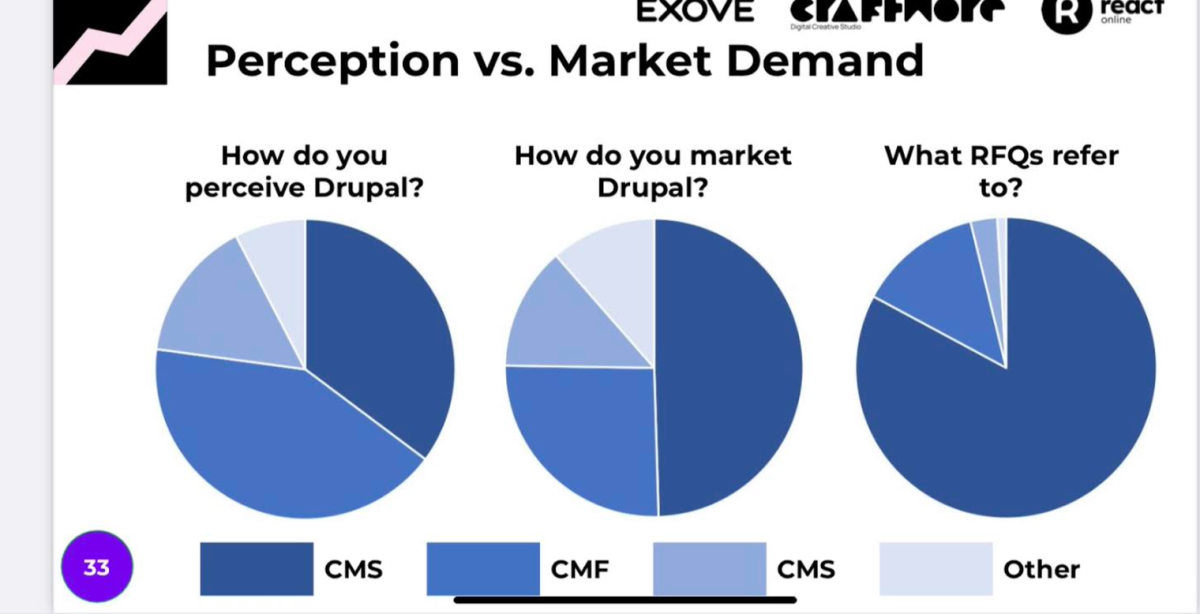
(The last light blue color CMS is actually the DXP piece of the pie)
I'll also continue to advocate inside and outside the Drupal community why an open DXP matters. I wrote in this blogpost how I'd like to create bridges between different open-source ecosystems. Last year, I advocated the message about bringing Mautic and Drupal closer together on several camps and cons: Drupaljam, Mauticon, Drupalcon Lille, Drupal Portugal & Drupalcamp Spain. I believe this is vital for the growth of the open web.
Next year, I'll try to advocate the message of selling Drupal as DXP and, while doing so, also bring Drupal closer to other open-source eco-systems like Mautic, which actually complete Drupal to form an open DXP. I believe it is crucial that the business ecosystem around Drupal learns to sell Drupal as a DXP to gain a competitive advantage over other proprietary platforms, which promise the customer the all-in-one but eventually lock them in with limited capabilities.
The final contribution I'd like to make is to help grow Mautic's ecosystem of sponsors. Dropsolid will contribute 2024 a 30k Diamond sponsorship towards Mautic. The only bigger sponsor in 2023 is Acquia, with 80k. I hope Acquia and Dropsolid, and many other Mautic-using companies can reinforce the organization to support Mautic's exponential growth. Also, many individual contributors are supporting Mautic as well; they are small but mighty, and they are growing. There are 65 million professional marketers, and there are 6.1 million php developers around the globe. Imagine that potential!
I always wondered about my place in the open-source ecosystem. I like sales, I like marketing, I like business, and I also like open-source technology & contributing. I really believe the open DXP brings all of this together. It spans multiple communities and multiple areas of business. I'm grateful to be able to contribute to this.
What about the trends in the market?
1. Drupal is firing it's second stage & Mautic is gaining critical mass
I've been enjoying this insightful read on Dries's blog about "The new old," where he explains how traditional CMS like Drupal embraced new concepts and where the new kids on the block, like JAMstacks and MACH architectures, are adopting old CMS concepts. I also wrote about this in 2022, when Drupal felt heavy competition from these concepts. In response, I've written: 'Why Drupal is a Shark and not a dinosaur". The point: Drupal does what it always does: “Integrating proven new trends.” At this point in time, Drupal has adopted these MACH principles and is gaining momentum that is difficult to stop. At the same time, the disruptors become the disrupted struggling to keep pace with the vast Drupal ecosystem, adding value upon value upon its solid open base.
The only thing missing is making sure everyone knows about Drupal's capabilities. But that will happen now. Drupal will be firing its second stage of the rocket.
Also, Mautic seems to be in a positive momentum. It seems the number of cumulative instances has almost doubled in the last 9 months!
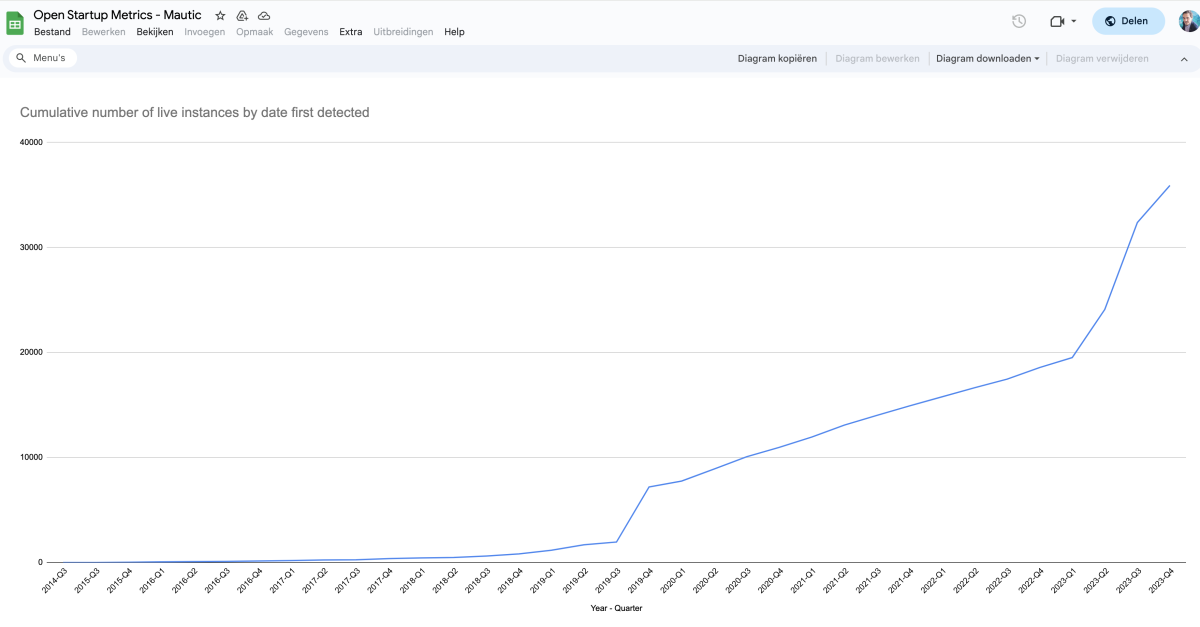
2. The impact of AI on DXP.
At Dropsolid, we were already adding AI to our DXP as far back as 2019. In 2023, we had an AI webinar showcasing the AI features in a DXP. We'll see more and more AI added to the software. Drupal seems to be a match made in heaven to add AI. Its structured way of handling code and data, which has been criticized by many, is now becoming a requirement. The AI loves Drupal. I predict that AI will prefer systems like Drupal to generate experiences with other systems. The AI will be able to generate the experience on the fly. To do this cost/energy effective, it will use a structured data engine like Drupal.
Steven and Frederik will be presenting at the Beltug AI day in Belgium on the 22nd of February on how to use the DXP with AI: https://www.beltug.be/agenda/artificial-intelligence-day-part-1-on-techn...
3. Cybersecurity:
With the creation of a security officer within Dropsolid, we confirm that this trend is real. Also, certifying for an ISO270001 became a reality. In 2024, we'll complete our audit. We see more and more organizations evolve in that direction.
I attended the cybersecurity summit in Brussels last week, where I was a speaker on the panel: "Cyber Coordination & Competence track Turning lesson learned into impact: from real-world cases to investment strategies. " I represented small enterprise IT organizations and discussed with policymakers what they could do to make small enterprises more aware and how to help them invest in cybersecurity. With AI-driven attacks, cybercriminals are on the offensive and are threatening many businesses and organizations.
At Dropsolid, we feel as a small enterprise, we are ahead of the curve. I predict many more organizations will have to focus on cybersecurity in the future. With our cloud platform, many organizations can at least have a secure web presence.
4. The need for sovereignty:
We see customers moving out of the cloud on more than one occasion. We also see big SaaS tools exiting the cloud, like Basecamp. Dropsolid has been investing in hybrid cloud since 2021. With a government grant, we created the capability that our cloud platform could also be used to deploy the DXP cloud agnostic and even on-prem! This gives customers full control of all the code, content, and data. I predict in times of AI, this will be crucial.
Don't build your farm on rented land. If you buy into cloud-native setups, you'll be locked in until you re-architect your entire platform.
At Dropsolid, we have the most open DXP as our slogan. We go beyond providing just open API's, we can actually deploy the whole DXP on your premise if you want us to. We are even working towards Sovereign AI. Where do you run the AI on your prem? All your proprietary data stays with you.
We see this trend being rewarded, especially where organizations are concerned about who gets to see their data.
Also, first-party data will become key if and when the world shifts to a more cookieless future. Marketers must collect their own data, meaning user data is their responsibility.
I also had the chance to talk about all this on the Axelerant podcast with Prateek and on the Agile Drop blog. We go in-depth on DXP.
5. The shift towards sustainability will continue:
This seems, at first sight, a non-digital trend, but I find it important to mention it.
Companies will become more and more involved in sustainability. Dropsolid reduced its carbon footprint by +-95% by reducing office space and investing in projects that neutralize its footprint. The energy transition is key, and although a company like Dropsolid is only a drop in the ocean, we still managed to reduce and offset our carbon footprint, and I'm proud of that. Also, being part of a project like ReFUELEU with our customer EASA that aims to transform how we use energy makes me happy.
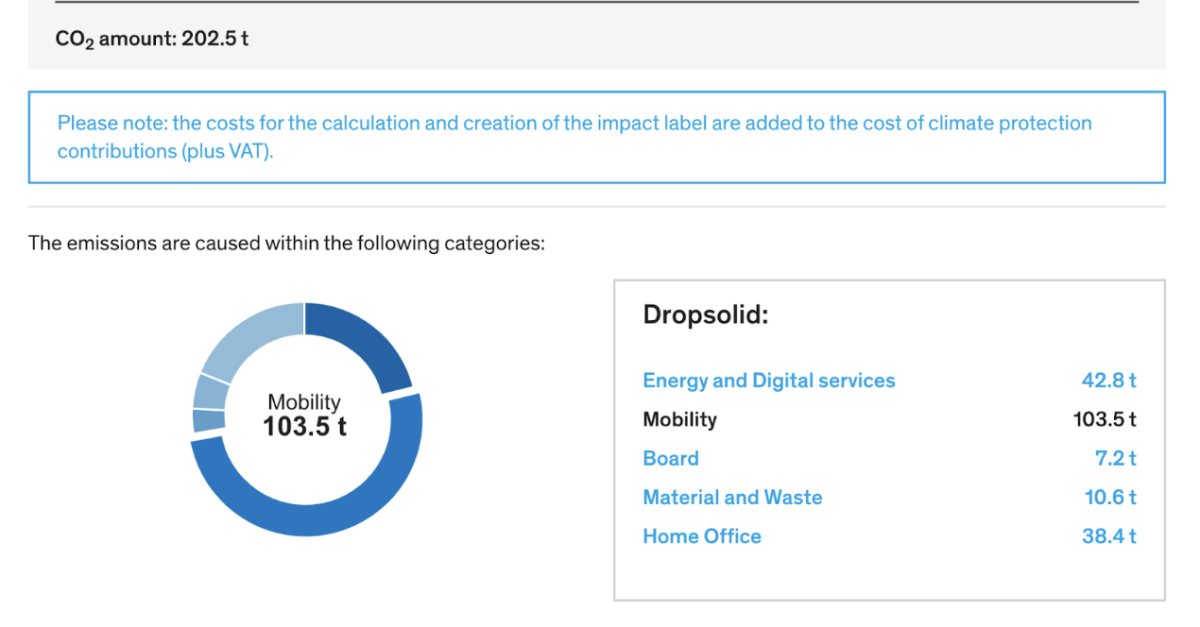
(We worked with the Swiss https://www.myclimate.org/en/ to calculate and offset our footprint.)
Our biggest emission is mobility because we give cars to our employees (we have calculated that also private use is counted). We reduced our footprint significantly to switch to home offices, we downsized our total office space by half last year! We also did it because it made financial sense; after COVID, office attendance was at a record low. Double win. This means Dropsolid is fully embracing the remote way of working. With C-level management spread out over multiple countries: Jeroen in the US, Steven in Belgium, and myself in Portugal, every level of the organization will experience the remote way of working.
The shift to sustainability should have a positive impact on the use of open source as open source optimizes resources in a way proprietary non-collaborative environments don't.
Although this is not a pure digital trend, one could argue that to save energy and optimize energy use, digital platforms like DXPs and AI will reduce the need for transportation, offices, and waste generation. Making it also a contributing upward trend.
The Vision for 2024: DXPs will keep growing
More customers will buy a bike instead of bike parts. Let me explain what bikes have to do with this.
Some messaging I came across this year was this webinar by Pantheon, life beyond DXPs, where the monolithic DXP is discouraged in favor of building your DIY DXP with parts from multiple vendors. Although yes, there is truth to the fact that designing, assembling, manufacturing, maintaining, and evolving your own bike from parts can give you an edge, but face it, most customers don't want to be bike manufacturers, designers, maintainers ... They just want to ride a bike that works. That is the DXP. It's a bike that just brings you from A to B fast and safely. You only need people who can ride a bike and maybe do some maintenance and customization yourself, but mainly, you just want to ride it.
I understand the analist from Forrester making the case that with his olympic coaches he competes with his own assembled bike, I get that, but for most businesses that is not an option. The DXP is a blessing for most businesses as they can now just bring in the package that works, the bike that rides. They can think of where to go with their bike instead of having a large team to design, build, and upkeep it. Most businesses cannot hire such large specialist teams. But they can hire people who know how to ride a bike.
Not all DXPs are closed monoliths. Customers can have a composable open DXP where, just like with the bike, they can add accessories, put on other wheels when needed, customize, and the bikes are "open". You can own it, it's yours and you can buy parts. You can hire a mechanic to work on the bike. But foremost, you can get one out of the box, and you can just drive it.
Hosting platforms like Pantheon seem to struggle to give a long-term answer on open DXPs. Just like MACH architectures struggle to communicate their value. The only argument is that traditional CMSs are monoliths. Yes, breaking it all into smaller components can give you an edge when you have large teams knowing all the components, but for most organizations, that's not an option. There are multiple stories of organizations stuck with stacks nobody still knows how to operate, with costly maintenance. A DXP protects you from this.
A composable open DXP might just be the best of both worlds. You just get your bike, you drive it, but you own it and you can still customize it. But it comes as a package. And the package, just like a bike, is valuable.
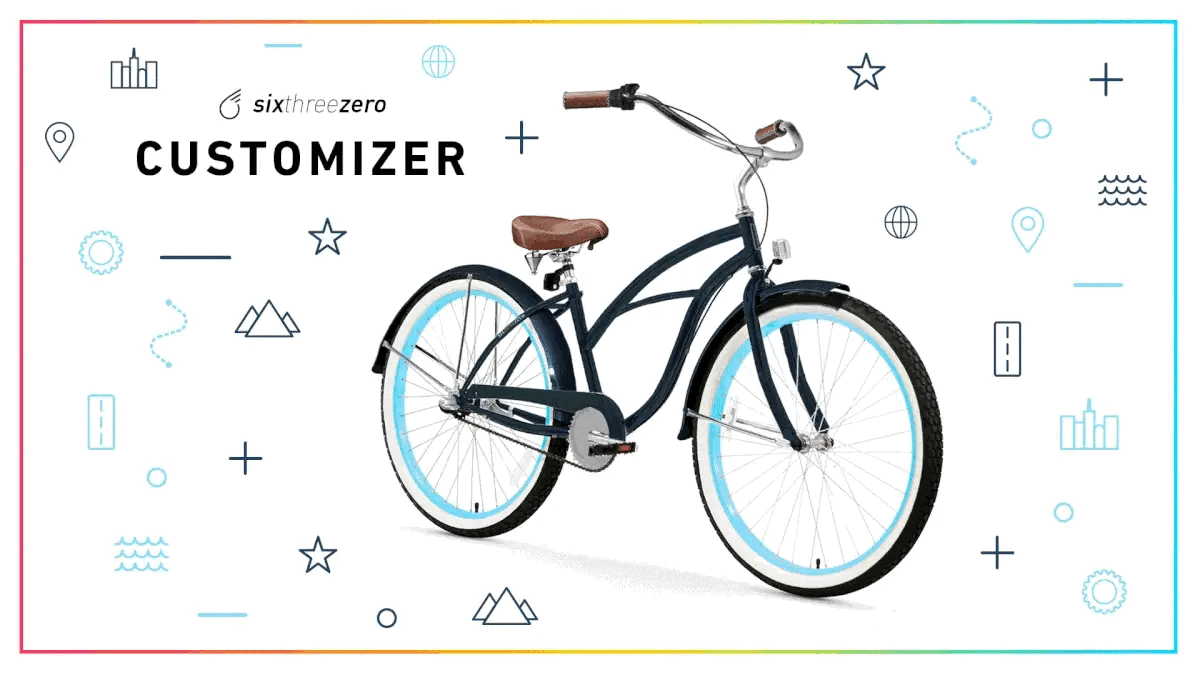
Source of the picture: https://www.sixthreezero.com/pages/customizer
DIY DXPs often make you end up with something like this:
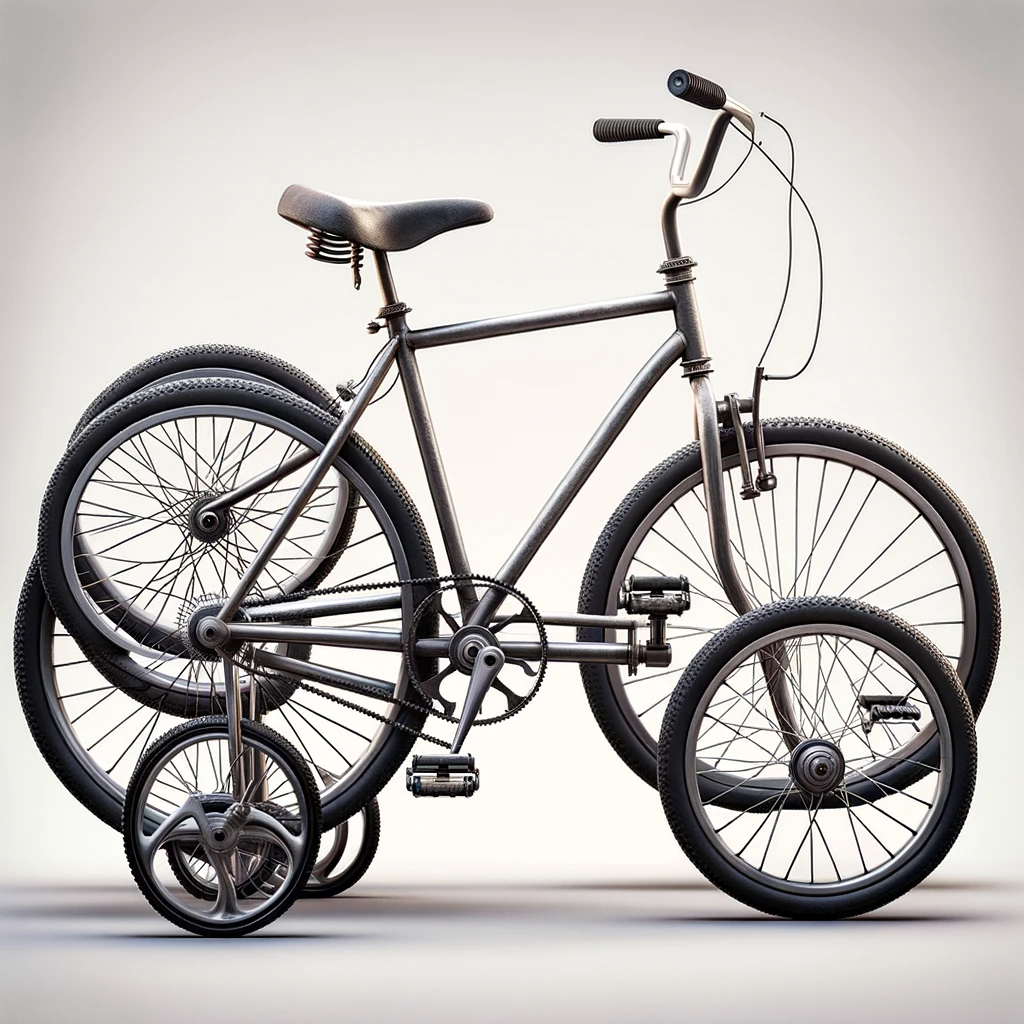
Source: Dall-e - A representation of some DIY stacks nobody can still ride confidently and no one still knows how to maintain as an analogy for DIY DXPs.
Lastly, I believe these confusing messages sent to the market by companies like Pantheon classifying all DXPs as inflexible monoliths is incorrect and short-term thinking. It seems that they try to protect market share for hosting platforms. However, by doing so, they are slowing down the adoption of the open DXP and the growth of the open ecosystem. The value they offer is only applicable to a small percentage of customers. Most customers are really in need of a DXP.
On the other hand, seeing hosting platforms putting out these messages against the DXP seems to me a validation that it does have true value. Why would they have to focus on the fact that DXPs are not the way to go and that they "all" are bad monoliths?
I hope they see the bigger picture and embrace the future, which is open DXP, and start contributing towards it.
Here is objective data that proves the market is moving in the opposite direction. The open DXP will continue to grow as the general DXP market will grow.
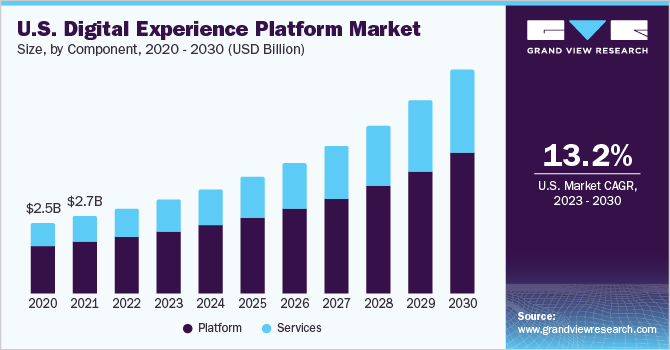
DXP, a blessing to the eco-system
We hope the Drupal commercial ecosystem will also adopt the DXP idea. We hope at Dropsolid, we can help them, as specialists win deals they couldn't otherwise with the DXP package.
Companies will be looking for an open tech ecosystem to adopt. To adopt a tech ecosystem they'll be looking for katalysts. I believe that this is the value of Dropsolid and the Dropsolid experience cloud. It is a cloud platform that helps you adopt an open DXP. It not only helps you unlock the tremendous value Drupal and Mautic bring, but it also helps you to put an enterprise layer around your stack to make sure your DXP stays up and running, secure, performant, and compliant.
A DXP is not just where you store content, you also store data so compliance levels go up when storing personal and maybe confidential information. I can think of many ways organizations get sued when they fail to handle confidential and privacy-sensitive data. It has to work.
Next to the enterprise layer, we also integrate all the components in the ecosystem into a coherent DXP. And we package this into a product/service offering that is unmatched in openness and price/value.
Our partners in the Drupal ecosystem don't need to make the investments Dropsolid has made in the last 10 years and can adopt the same methodologies that differentiate you from other agencies. Just in Belgium (a tiny country of 11M inhabitants) there are no less than 2000 agencies! You need to have something unique. And with business getting tougher because of inflation, there are fewer deals. The number of public tenders is also decreasing. In Belgium, the number dropped 40% compared to 2021.
You will need something unique to win deals. The open DXP might just be that.
To conclude
We went full circle.
We learned from our mistakes and got back to the core.
The digital experience company is expanding globally.
We are starting a new adventure surfing major trends like the second stage of the rise of open source tech, the rise of AI, the need for packaged solutions like DXP, the need for more Cybersecurity, the shift to more Sovereignty, and the importance of sustainability.
We see DXP transcending single open-source projects to form ecosystems.
We believe the open DXP is the differentiator many Drupal specialists need to differentiate themselves from other agencies.
That's it!
All the best, everyone and I hope to see you on one of the cons or camps this year: I'll be in Davos for mountain camp, in India for Mauticon, in the US for Dcon Portland, Dcon Barcelona, Dcamp Spain in Benidorm and hopefully also Drupaljam and the to be announced Drupalday Portugal. I wish you all the best, bless you and have a great year!
